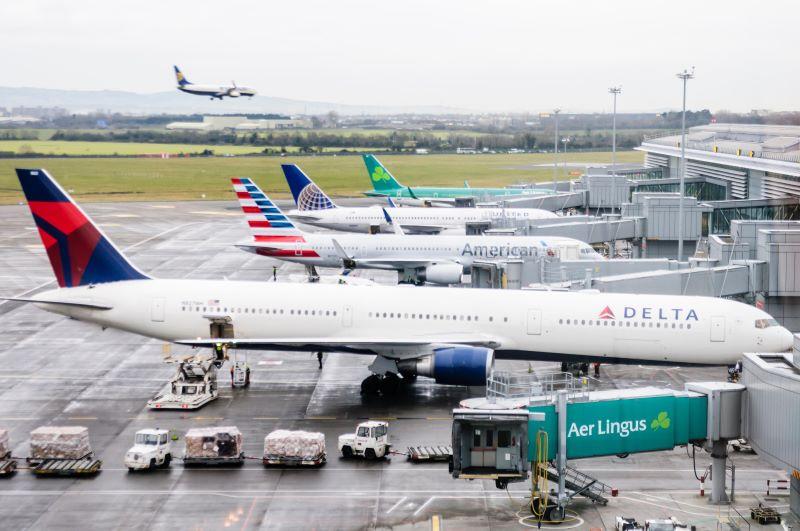
American Airlines, Delta Air Lines and United Airlines collectively spent $2.1 billion on maintenance in the 2023 second quarter (Q2), 47% above the level seen in pre-pandemic Q2 2019, according to a new report by investment bank Jefferies.
This trend augurs well for the commercial aftermarket, with revenue forecast to be 106% above 2019 levels and engine overhaul demand providing potential upside. Further capital expenditure revisions suggest delays in new aircraft deliveries into 2024.
Looking on a trailing twelve-months (TTM) basis, the three carriers have together spent $7.7 billion on maintenance, a 31% increase from $5.9 billion in 2019. Delta has adjusted the seasonality of its maintenance, while American is focused on preventative maintenance for its engines and auxiliary power units.
In the 2023 first quarter, Delta’s MRO division Delta TechOps signed nine component MRO contracts valued at $225 million. Ranging between three and five years, these exclusive agreements cover both Airbus and Boeing fleets, depending on the customer—which include both cargo carriers and passenger airlines. The programs will mainly support Boeing 737, 767, Airbus A320 and A330 aircraft platforms, and cover everything from avionics to mechanical to fuel and hydraulic components.
Meanwhile, earlier in July, United and AAR signed an agreement under which their existing airframe MRO services relationship will be extended through 2030 and AAR will provide additional heavy maintenance commitments. In a press release, AAR said that it would grow its dedicated airframe narrowbody capacity to provide United with at least 10 lines of maintenance support across the aviation service provider’s Florida and Illinois MRO facilities.
“Expanding our relationship with AAR is an important step in building out our internal and external long-term heavy maintenance footprint to meet the demand for our growing fleet,” Mike Arata, MD of Base Maintenance for United Airlines, said in the press release.
To date, U.S. airline maintenance spend is ahead of other parts of the world, in line with the strong recovery of its passenger airline market. Jefferies notes that North American available seats per kilometer (ASK) were 2% ahead of 2019 in May, but globally ASKs were still 4% below 2019 levels. Asia-Pacific was the laggard at 12% below 2019 levels.
Lastly, Jefferies notes that the delay in aircraft deliveries indicates slower replacement of older aircraft in the global fleet with U.S. carriers a priority for Boeing and Airbus. While some of these delayed deliveries limit market capacity and squeeze ASK growth, the continued utilization of older aircraft supports higher aftermarket content on aircraft flying today than in 2019.
